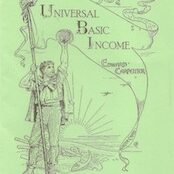Much concern has already been expressed about the way in which the Labour Party’s ‘biggest ever’ consultation exercise – Refounding Labour – has been conducted but the problems just seem to mount up.
On Tuesday 20th September, a mere five days before 2011 conference kicks off, the NEC finally published its set of recommendations in response to the Refounding Labour process. While it contains many welcome proposals (see the brief summary below) there has been no time left for members to discuss their views on these changes.
Crucially, two critical issues seem yet to be decided. As reported by constituency NEC member Joanna Baxter on Labour List, the NEC will discuss further the questions of whether registered supporters will be given formal voting rights in the party (and reports suggest they will propose a role in elections for leader and deptuy leader) and, secondly, the allocation of votes at annual conference between affiliate and constituency sections. Astonishingly, this discussion will take place on Saturday evening, just one day before conference will be asked to vote on the whole package on a take it or leave it basis.
The only way out of this wholly undemocratic mess is to support the call by Bridgend CLP for the vote on Refounding Labour to be postponed to a special conference. Given the range of changes proposed, party members need to be given time to consider the new rules, and a means to debate and amend them. The propsect of non-members being given a formal voting role crosses a line for many in the party, and the domination of conference by three big unions remains a crucial issue to be addressed. All the commitments to openness, democracy and for a real role for members will count for little if the party is, as looks likely, railroaded into agreeing changes without due deliberation and debate.
As things stand, the agreed NEC document ‘Refounding Labour to win’, and the accompanying amended Rule Book, omit major changes on the two most controversial issues.
First, it endorses maintaining the current division of conference votes – 50 per cent to Trade Unions and affiliated organisations (albeit henceforth to include Young Labour and the Association of Labour Councillors), and 50 per cent to CLPs. Secondly, it provides for no major change to the rules for electing the leader and deputy leader other than to curb the current practice of double voting.
Indeed, in the summary and in an NEC appendix to the Rules, the party reaffirms the rights of full members over registered supporters, stating that Labour Supporters would ‘enjoy informal involvement and participation’ only. It would be entirely unacceptable for the NEC to make major changes on these two issues on the eve of conference.
Refounding Labour to Win also recommends:
- a change to clause 1 of the Party’s constitution, so that in addition to the aim of ‘maintaining the party in parliament and in the country’ the party will also seek to ‘bring together members and supporters who share its values to develop policies, make communities stronger through collective action and support, and promote the election of Labour representatives at all levels of the democratic process.’
- changes to the rules setting out the rights and duties of the leader and deputy leader.
- a series of changes to how CLPs are run including greater freedom to choose their own party structures and officers, and greater space for political debate in party meetings.
- setting up a registered supporters scheme whereby local parties recruit supporters, although national online registration would also be possible. As noted, currently there is no proposal for registered supporters to have any formal role in the party elections, voting or selection procedures (although presumably this is subject to the NEC rethink on Saturday?). According to Joanna Baxter’s report, these lists would be locally managed, although how that will square with any role they may have in leadership elections, or with a national online recruitment process, is unclear. Local parties would be expected to hold at least one consultation meeting with supporters and potentially have much greater informal involvement than that.
- a series of as yet fairly vague commitments to improve the transparency and accountability of the National Policy Forum processes, including an online ‘audit trail of proposals’ to track what happens to submissions to the NPF. Refounding Labour to Win clearly acknowledges the criticisms of the NPF without having a very clear idea of how it might change. Although it reaffirms the sovereign role of conference, the document is silent on changes to how NPF proposals might be debated or voted on.
- a new funding regime for local parties, establishing what Joanna Baxter termed ‘a minimum wage for CLPs’ seeking to support poorer/weaker CLPs and support CLPs’ ability to send delegates to conference.
- candidate contracts to be signed by all local council and parliamentary candidates specifying their duties.
- Local Government Committees and County Parties to be replaced with Local Campaign Forums while there’d be enhanced rights (including voting rights) for the Association of Labour Councillors.
- a beefed up role for Young Labour, including an annual conference and enhanced rights to vote, nominate and submit motions to conference.
- new membership rates.
- training and support for local organisers, campaigners and prospective candidates in selection contests
- commitments to enhance diversity.
See the full text of Bridgend’s proposal go to www.labourdemocraticnetwork.org
Read the ILP’s submission to Refounding Labour.



21 October 2011
There is a whole complexity about the “Refounding Labour” procedure. It is claimed that there have been 184 party submissions, with 36 from groups, plus 66 events led by National and Regional Offices (where at the two I went to we were informed that the ideas that were expressed would be reported to those who were running the show). Yet we have no adequate explanation of the range and nature of the ideas that were submitted. Just a document issued at Conference itself full of phrases such as “there was widespread support for x”. Then on the back of this process a whole host of rule changes were adopted on the basis of a single card vote, on matters which were never circulated in advance to CLPs and affliated bodies. Furthermore, some of these rule changes had little to do with the “Refounding Labour” consultations. For instance, some arose as a consequence of the recent report on parliamentary boundaries by the Boundary Commission. My analysis of the use of the procedure to push through rule changes is given here – http://threescoreyearsandten.blogspot.com/2011/10/death-of-party-democracy.html
But what was presented to delegates went beyond rule changes. A 40 page report and 20 other documents were issued to delegates in a glossy pack on topics with titles such as “Refounding our place in the community – Model community and campaign plan”. Then a statement from the NEC was issued with clarifications or adjustments on arrangements in the Electoral College for (1) a new category of registered supporters and (2) multiple vote alterations. This statement also pointed out that the NEC has agreed to further consultations to take place on “Refounding Labour” until the end of March 2012 with a view to presenting material to next year’s Conference. On this occasion we will hopefully find out in advance what is going to be placed before that Conference.